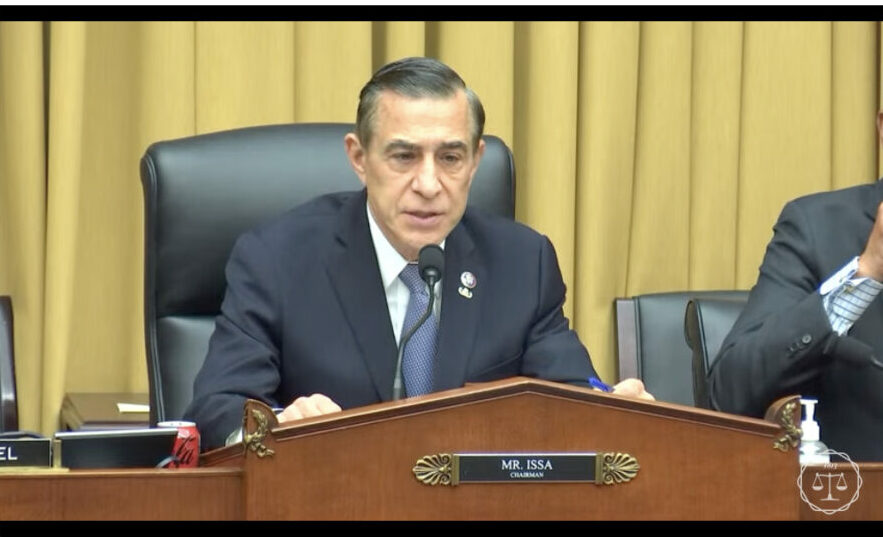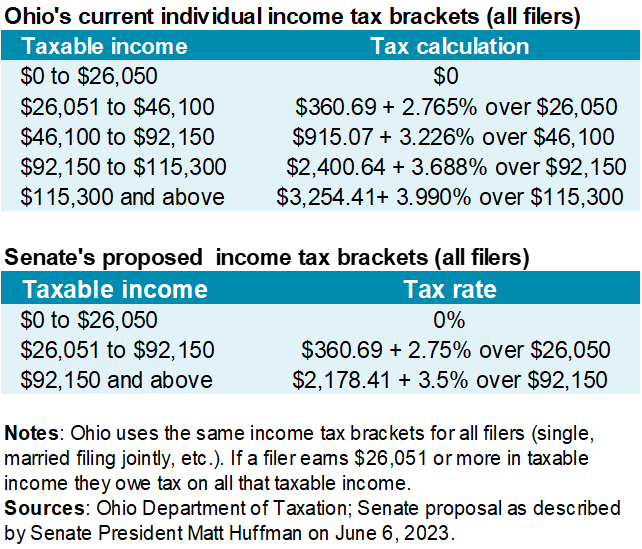Reforming EU Own Resources Tax Policy & European Competitiveness
Fostering European competitiveness is frequently on the minds of EU leaders. This has only accelerated since the COVID-19 shutdowns, the energy crisis caused by Russia’s war in Ukraine, and the economic subsidy race to the bottom sparked by allies (like the U.S. Inflation Reduction Act’s electric vehicle tax credits).
For example, French President Emmanuel Macron argues that the EU needs to reform its economic agenda and enhance competitiveness. European Commission President Ursula von der Leyen has also given speeches on “Europe’s competitiveness in a new context.” Furthermore, German Chancellor Olaf Scholz has said that he wants to boost European competitiveness through reforms and focus on a “competitive European Union.” The Council of the European Union even has a competitiveness configuration (COMPET) whose objective is to “enhance competitiveness and increase growth in the EU.”
However, when it comes to EU-level tax policy ideas, competitiveness seems to be less of a priority than raising revenue or pursuing social objectives.
Consider recent proposals to reform the EU’s own resources. In response to the COVID-19 pandemic, the EU adopted a stimulus and recovery package called NextGenerationEU (NGEU). For the first time, the EU agreed to issue joint debt to finance loans and grants to Member States (around €800 billion). The European Commission will sell bonds until 2026 and debt repayments will take place from 2028 to 2058. Specifically, loans will be repaid by the borrowing Member States, while the grants (around €338 billion) are expected to be paid by the EU budget.
This increases pressure on the EU budget (the Multiannual Financial Framework [MFF]), which, in addition to funding the EU’s operations and programs, now also needs to allocate resources to repaying NGEU debt. This is especially true given rising interest rates that make the cost of borrowing more expensive. European policymakers managing the budget must now find stable and reliable revenue streams to fill the gap.
In particular, members of the European Parliament (MEPs) are looking for additional funds to designate as EU own resources. Doing so would not only give them more political power at the EU level, but it would also give the EU budget the ability to make debt payments on time without reducing other EU spending programs.
On 17 April, the parliament’s Budget Committee (BUDG) adopted a draft report suggesting several proposals to diversify the EU’s financing sources, such as a fair border tax and a tax on cryptocurrencies. A European wealth tax was also proposed in previous debates on the report.
There are several problems with these tax policy designs. First, they would likely not raise stable revenue. While the committee does not provide any revenue estimates (which itself is problematic), historically, tax policies that have an unstable tax base do not produce consistent revenue streams. This would be an issue for policymakers in need of revenue with a hard 2028 debt repayment deadline.
Second, the tax bases of these proposals would be relatively narrow. Principled tax policy aims for broader bases and lower rates to ensure that the revenue streams are predictable and reduce the economic distortions caused by the tax. In this case, it would also limit the need for future deficit borrowing at the Member State or EU levels to repay debt.
Finally, from an institutional perspective, BUDG’s focus is spending, not designing tax policy. This can lead to policy designs that prioritize revenue raising over the negative economic effects on competitiveness.
Some MEPs might think that raising some revenue is better than not raising any revenue. However, this logic ignores tax incidence and any negative economic distortions caused by a tax, not to mention any implementation or enforcement costs for the government. These stop-gap measures focused on raising revenue over fostering European competitiveness are economically harmful, and if policymakers truly want to make a positive impact, then they should refrain from pursuing ill-designed tax policies.
During the upcoming plenary vote on this report in May, MEPs should present a united front in the revision of the MFF and the EU’s own resources by focusing on a more principled proposal—the reform of the value-added tax (VAT)-based contributions.
VAT-based contributions could play a significant role in funding the gap, but the current regime is flawed and cuts against the usefulness of the VAT as a revenue source for the EU budget. Focusing on reforming and enhancing the efficiency of VAT-based contributions will raise revenue more efficiently with fewer economic distortions.
As the EU revises the MFF, it must alter the revenue streams needed to pay for the additional programs established since 2020, like COVID-related funds or expenses caused by the war in Ukraine. The EU has spent more than it originally planned, and it now needs to raise funds—but it should not do so in an overly complex, limited, and inefficient way that is only focused on raising revenue. Policymakers must incorporate competitiveness into their tax policy designs.






